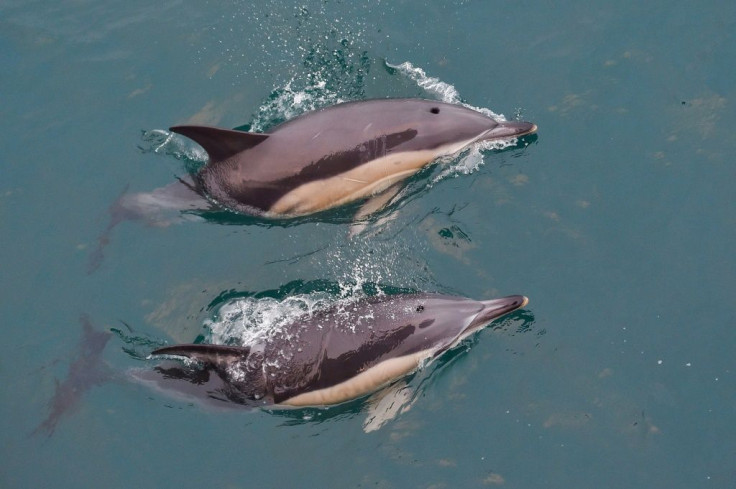Dead Dolphins And Whales Wash Ashore In Mauritius Near Site Of Massive Oil Spill
KEY POINTS
- 17 dolphins wash ashore near site of oil spill at Pointe d'Esny; 14 were found dead
- 18 whales washed up on Grand Sable, about 25 kms north
- Autopsies being held to establish cause of death after environmentalists allege link to oil spill
At least 17 dolphins washed up on the coast of Mauritius on Wednesday, near the site of a massive oil spill where a Japanese-owned ship had run aground last month. Eighteen melon-headed whales also washed up further north on the country's coast on the same day, but it was not immediately clear if both incidents were connected to the spill.
Fourteen of the dolphins were dead when found, while the others were stranded onshore and appeared seriously ill, Al Jazeera quoted environmental consultant Sunil Dowarkasing as saying.
The whales washed up on Grand Sable, about 25 km north to where the dolphins were. Some of them appeared to have injuries, according to the Japan Times. There was very little information available on the whale deaths.
Environmentalists called on the government to investigate whether the oil spill was responsible for the mass die-offs. Autopsies were being carried out on the carcasses of the dolphins and whales to determine the exact cause of death.
The MV Wakashio ran aground on shallow reefs off the southeast coast of Mauritius on Pointe d'Esny on July 25. It was carrying 4,000 tons of oil and the spill prompted the government to announce a state of environmental emergency. Scientists had dubbed the spill the country’s worst ecological disaster after it covered a vast area of endangered corals and affected fish and other marine life.
The nation’s fisheries minister, Sudheer Maudhoo, told the BBC that "at first glance" the dolphin deaths appeared to be unconnected to the spill, noting that the dolphins had shark bites. "This is a terrible day. We are seeing these dolphins swim up to the shore in distress and then die," Dowarkasing told Al Jazeera. "We have never seen deaths of these very intelligent marine mammals like this. Never."
Jasvin Sok Appadu, a government official from the fisheries ministry, said that the dolphins had blood around their jaws but no trace of oil was found initially. "The dead dolphins had several wounds and blood around their jaws, no trace of oil, however. The ones that survived, around 10, seemed very fatigued and could barely swim," he told Reuters.
But oceanographer Vassen Kauppaymuthoo told the BBC that the dead dolphins smelled of fuel.
This is reportedly the first case of dolphin deaths in the area since the oil spill occured. Up until now, many fish and crabs have been found dead near the site of the shipwreck. Dowarkasing speculated that either the oil spill from the ship or the sinking of the bow section of the wrecked ship last week might have caused the deaths.
"The scuttling probably disturbed marine mammals in their natural habitat. There will be after-effects, and this is just the beginning," Dowarkasing told the BBC.
This incident must be investigated fully and transparently!
— Greenpeace Africa (@Greenpeaceafric) August 26, 2020
If the oil spill was indeed the cause of this tragedy, then the polluters must be held accountable for the harm done to coastal communities and their #Biodiversity >> https://t.co/OHBtIChDzf #BreakFreeFromFossilFuels
Greenpeace Africa asked the government to conduct an investigation and to hold the polluters accountable for the "harm done to coastal communities and their biodiversity."

© Copyright IBTimes 2025. All rights reserved.






















